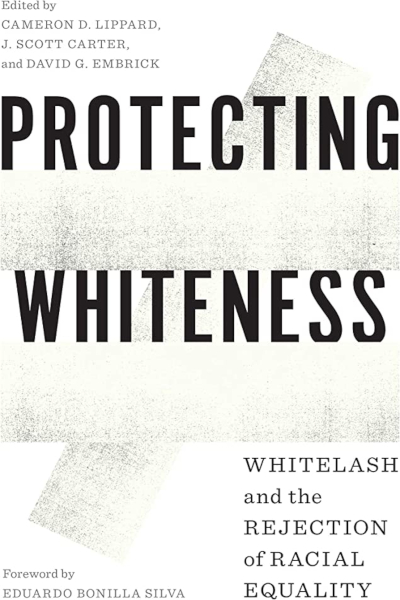David G. Embrick, Editor
The standoff at Cliven Bundy’s ranch, the rise of white identity activists on college campuses, and the viral growth of white nationalist videos on YouTube vividly illustrate the resurgence of white supremacy and overt racism in the United States. White resistance to racial equality can be subtle as well—like art museums that enforce their boundaries as elite white spaces, “right on crime” policies that impose new modes of surveillance and punishment for people of color, and environmental groups whose work reinforces settler colonial norms.
In this incisive volume, twenty-four leading sociologists assess contemporary shifts in white attitudes about racial justice in the US. Using case studies, they investigate the entrenchment of white privilege in institutions, new twists in anti-equality ideologies, and “whitelash” in the actions of social movements. Their examinations of new manifestations of racist aggression help make sense of the larger forces that underpin enduring racial inequalities and how they reinvent themselves for each new generation
